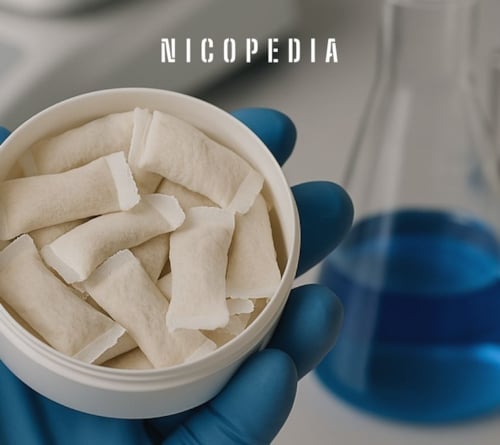The answers below are based on Dr Sud’s understanding of the category nicotine pouches. The answers are the result of his published research and years of working in tobacco harm reduction science and policy. These answers are not to be taken as medical advice or endorsement. Neither Dr Sud nor CHRE will take any responsibility for consumers making any health decisions based on this advice.
Published 2020-06-25
Q&A nicotine pouches with Dr Sudhanshu Patwardhan
Dr Sudhanshu Patwardhan is British-Indian, UK licensed Medical Doctor, passionate about helping people quit risky tobacco. Dr Sud, as he is mostly referred as, now splits time between the UK and South Asia on tobacco harm reduction projects that address the needs of the most disadvantaged tobacco users.

He founded the Centre for Health Research and Education (CHRE) with his physician wife, and now they work with a team of over 40 medical and public health experts on tobacco harm reduction projects in the UK and South Asia. CHRE is a product agnostic and smoker centric organization, and do not receive any funding from tobacco, nicotine pouch, e-cigarette or pharmaceutical companies. In their latest publication, Dr Sud’s team @CHRE call for tobacco harm reduction to be offered with nicotine replacement for hospitalised smoker patients.
What happens if you swallow or eat a Zyn or a nicotine pouch?
Assuming this is an adult consumer and not swallowing more than one pouch (of 20 mg or less) accidentally, the risks should be negligible. If in doubt or experiencing any undesirable symptoms, the consumers should seek urgent medical care.
Are nicotine pouches a better alternative to vaping?
The question could read “are nicotine pouches a better alternative to any or all stop smoking aids available on the marketplace” and still be a poorly framed question! No two consumers of tobacco products are alike. The consumer makes choices based on a range of factors including social, health, behavioural and economic (and not in that order).
From a science point of view, in theory, a nicotine pouch made using pharmaceutical grade nicotine should release lesser toxicants during consumption that make it a potentially safer alternative compared to e-cigarettes’ emissions. However, this depends on the toxicological profile of ingredients used in the manufacturing of the pouches, their quality and quantity, and the manufacturing, processing and packaging standards followed till they reach the consumer. So, lots of variables!
Also, nicotine pouches are oral products with no inhalation involved. So, naturally, any lung related risks are nearly non-existent.
Does Nicotine or nicotine pouches cause headaches?
Short answer:
Nicotine’s action in the body can manifest in many ways, including central nervous system and cardiovascular system effects. Headaches, dizziness, palpitations, raised blood pressure are some of the symptoms that may occur on using a nicotine pouch. These are more likely in a nicotine-naïve user vs a consumer tolerant to nicotine due to current tobacco or nicotine product use.
Long answer:
- Effects of nicotine are usually dose dependent. Higher dose pouches can elicit stronger adverse reactions.
- Nicotine can be rapidly absorbed from the oral cavity, and unlike inhaled nicotine, may not give many clues before its direct action on the receptors in the body.
- Also, in nicotine naïve users, nicotine may have a more pronounced effect than in someone who has developed tolerance through previous usage of nicotine/tobacco products.
In any case, consumers should immediately remove the pouch on experiencing any adverse or unpleasant symptoms and seek urgent medical assistance. Also, important to note here that nicotine pouches have a potential to be a harm reduction alternative for users of risky-tobacco products. Nicotine pouches should not be sold or consumed by those under-age or non-tobacco users.
How is Nicotine absorbed and metabolized?
Nicotine absorption depends on the route of administration and what else is in the mix of the product or the resulting aerosol (e.g. cigarettes, e-cigarettes) during use.
In the case of nicotine pouches, nicotine is expected to be absorbed directly by the rich vasculature (blood vessels) of the lining of the gums and oral cavity. After its initial transport to and action on the receptors in the central nervous and cardiovascular systems, nicotine is finally broken down in the liver and its breakdown products excreted in the urine.
Can nicotine pouches cause gum disease or tooth loss?
It depends on whether there are ingredients in nicotine pouches that can lead to tooth decay and tooth loss. There are no studies to prove that nicotine pouches do not increase likelihood of gum disease or tooth loss, but then there are no studies to show the contrary either. Manufacturers need to conduct these studies to assure their consumers of the safety and risk profile of these new product category.
Consumers are best advised to maintain good daily oral hygiene and regular visits to a dentist.
Are nicotine pouches safer than cigarettes or other nicotine with tobacco?
Depends on many factors. Pouches should not contain excessive quantities of nicotine, additional additives and should be clearly labelled for adult use. If the manufacturing and packaging of these products can meet these conditions, then based on their expected ingredients and method of consumption, they are likely to be significantly safer than cigarettes.
Whether they are safer than Swedish snus is hard to say, but “clean” nicotine pouches should contain no tobacco-related or other unwanted harmful substances. So, hypothetically, they may be safer than all tobacco containing products.
Why does Nicotine suppress appetite?
Smokers on average have a lower body to mass index than non-tobacco users and gain weight following smoking cessation. Different hypotheses, but the evidence is not that clear. There are numerous behavioural and pharmacological mechanisms at play. One thing is certain: no one should start or continue using nicotine and tobacco products for suppressing appetite or losing weight. There are many alternative and body friendly ways of managing weight.
Nicotine’s Impact on memory. True or not?
There are studies that propose that nicotine may have a positive cognitive effect, mainly related to concentration. However, these have methodological issues as it is hard to distinguish the cognitive impact of abstinence from the positive effect of nicotine in people.
Can nicotine keep coronavirus away?
The Covid-19 pandemic is galvanising researchers globally to look for possible preventative, protective and/or therapeutic solutions. Nicotine is one of those hundreds if not thousands of candidates!
Smoking has short-and-long term adverse effects on one’s mental and physical health. Quitting smoking using licensed nicotine therapy products (nicotine gums, patches) or with regulated alternative nicotine products (e.g. e-cigarettes in the UK), can be an important positive step for a smoker to take towards leading a longer and healthier life. Nicotine pouches may also be such an alternative product if the manufacturers of these products
- put adequate resources behind establishing and abiding by safety and quality standards
- demonstrate the pouches’ clinical as well as population level effectiveness as quit smoking tools.
Our team at CHRE is including nicotine pouches in ongoing research and educational engagements with consumers and healthcare professionals, respectively, to get clarity on what role nicotine pouches could play in smoking cessation through tobacco harm reduction.
Related articles




